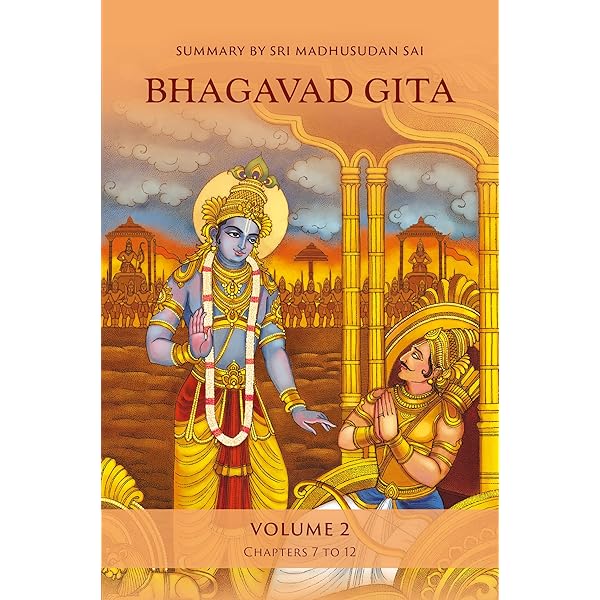Chapter XVIII — The Bhagavad-Gita
byChapter XVIII opens with a direct question from Arjuna, who seeks to understand the difference between renunciation and the abandonment of action. Krishna responds with calm authority, distinguishing between the two with clarity. Renunciation means giving up desires behind actions, not necessarily the actions themselves. In contrast, abandonment refers to giving up attachment to results. This is a vital distinction in the pursuit of spiritual progress. One is not asked to withdraw from life, but to engage with it without selfish expectation. Actions rooted in duty must be performed, even if they are difficult. Purity lies not in escaping life but in acting with selflessness.
Krishna explains that sacrifice, penance, and charity should not be avoided. These purify the soul when performed with detachment. It is intention that defines whether an action binds or frees. When desire fuels it, the action creates bondage. But when done in devotion and offered without craving for reward, it becomes a step toward liberation. The lesson emphasizes that work alone is not enough; inner freedom from outcome must guide the effort. Here, detachment is not neglect—it is wisdom in motion. Every role in life becomes spiritual when performed with clarity and surrender.
Krishna also identifies the threefold nature of action—those driven by ignorance, passion, or knowledge. The wise act with discipline and detachment, understanding that results arise from many causes, not the individual alone. Arrogance in action stems from forgetting this universal truth. The ignorant think they alone act, but the enlightened see the Self as a witness, not a controller. In Sankhya philosophy, this distinction is foundational. All acts arise from a convergence of body, senses, mind, ego, and fate. Recognizing this prevents pride and cultivates humility.
Each person is born with specific qualities, shaping their unique path. Krishna advises that performing one’s natural role, however flawed, is better than taking up another’s perfect work. Brahmans, Kshatriyas, Vaisyas, and Sudras each have duties grounded in their innate traits. Harmony arises when each fulfills their role without desire or comparison. Perfection lies in sincere effort, not borrowed greatness. Arjuna is reminded that following his warrior duty, with devotion and awareness, can lead to liberation. One’s spiritual evolution comes not through escape but through the transformation of everyday duty into sacred action.
The chapter gradually unfolds the secret of surrender—giving not only actions but the self to the Divine. Krishna encourages Arjuna to act, but with all thoughts anchored in God. When ego is dissolved and all deeds are offered as worship, the soul becomes free. This is not blind faith, but a conscious surrender of pride and attachment. Even the gravest sins can be overcome by unwavering devotion. Here lies the promise of spiritual freedom—open not only to saints, but to all who turn their hearts fully toward the Divine. Such surrender is not weakness but strength born from inner trust.
Krishna’s final instruction is deeply personal. “Abandon all dharmas and take refuge in Me alone,” he says. This line strips away complexity and offers a single path: absolute surrender. Liberation is promised to those who love fully and trust completely. Arjuna’s hesitation dissolves in the light of this truth. With heart and mind aligned, he chooses to fight—not for self, but as an act of divine service. In this, the warrior becomes the seeker, the battlefield becomes the temple.
Sanjaya, the narrator, closes the chapter with awe. He reflects on the divine radiance he has witnessed, thankful for the vision of Krishna’s glory and Arjuna’s awakening. The message transcends time. It speaks not only to kings or warriors, but to anyone standing at a crossroads between fear and truth. The Bhagavad-Gita, through this final chapter, becomes a guide for the soul—uniting knowledge, action, and devotion into one timeless path.

